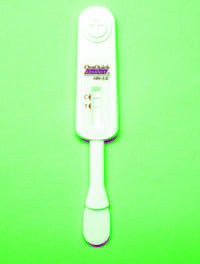Abbott announced that the company has received FDA approval to market the Abbott RealTime HIV-1 viral load test for use on its m2000 automated instrument system.
The assay is designed to detect and precisely measure levels of HIV circulating in a patient’s blood, including the three major groups of HIV-1 as well as non-B subtypes. The test is intended for use as a marker of disease prognosis and an aid in assessing viral response to antiretroviral treatment.
"As the viral diversity of HIV-1 continues to increase, the need for highly sensitive tests to monitor patient response to antiviral therapies becomes even more important,” says John Robinson, PhD, senior director, research and development, Abbott Molecular.
HIV-1 can be divided into groups M (major), O (outlier) and N (new). The vast majority of isolates cluster in the M group. Distinct lineages within group M have also been identified, and these lineages are called strains or subtypes. They include subtype designations A through G. While HIV-1 subtype B continues to be the most common strain found in the United States, studies suggest that an increasing number of newly diagnosed patients are infected with non-B subtype viruses and various circulating recombinants as a result of the influx of immigrants from countries where variant strains of HIV are more common. In a recent study published in the Journal of Medical Virology, examining the impact of this phenomenon on Minneapolis-based Hennepin County Medical Center, the predominant HIV subtypes identified by the hospital in African-born patients were subtype C (40%), followed by A (20-25%), D (10%) and G
(3-5%).
According to Abbott, another recent study by the CDC involving more than 3,000 HIV patients in the United States found that 5.1% of those patients were infected with HIV-1 non-B subtypes.
The RealTime HIV-1 test has been developed for use on the Abbott m2000 system, an automated instrument for DNA and RNA testing in molecular laboratories. The system, based on real-time polymerase chain reaction (PCR) technology, is designed to detect and measure life-threatening viruses and bacteria in patient samples in less than 5 hours.



